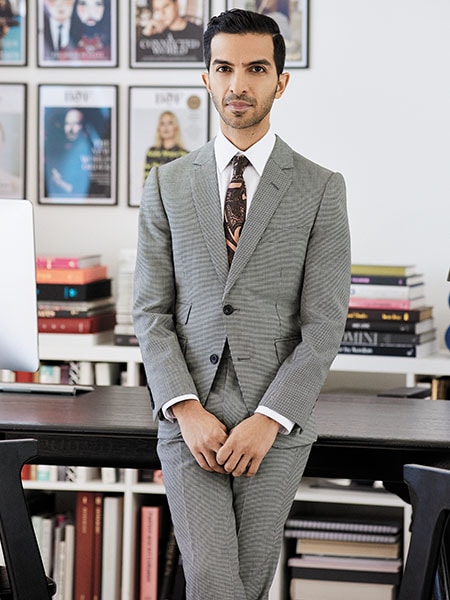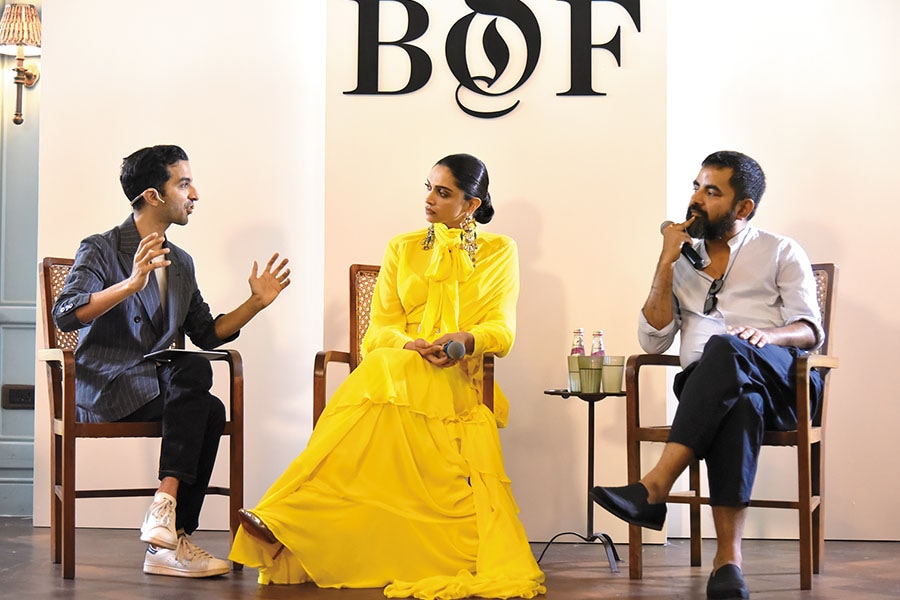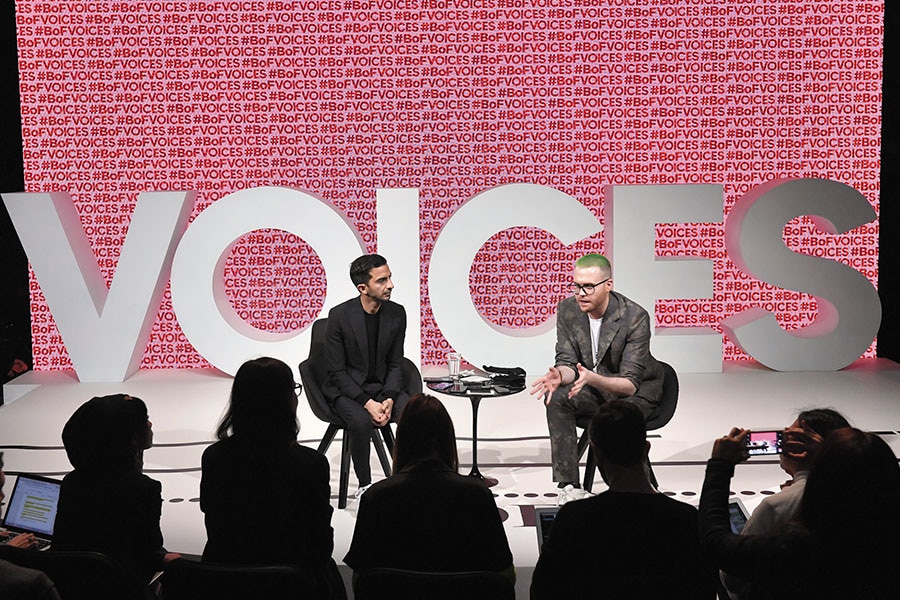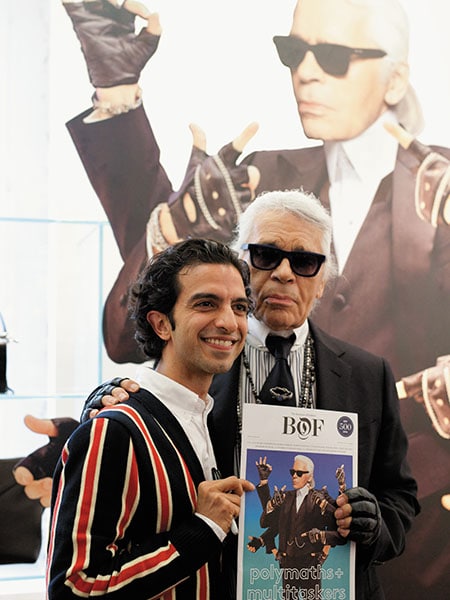
How Imran Amed became one of the sharpest voices in fashion
The Indian-origin founder, CEO and editor-in-chief of The Business of Fashion, is focused on spotlighting the grime behind the glitz
 Imran Amed, Founder and CEO of The Business of Fashion
Imran Amed, Founder and CEO of The Business of FashionImage: Philip Sinden
Imran Amed’s Instagram page is colourful. For the fashion industry commentator and founder-CEO of the popular and influential blog-turned-media company, The Business of Fashion (BoF), the shades pour in from various quarters, well beyond the spring-summer runway. While one post highlights the story of Bangladeshi activist Kalpona Akter, fighting for the rights of garment workers in her country, another tells the tale of disruptor Virgil Abloh, the Ghanian-American founder of Off-White, a label that’s now a sensation in luxury streetwear.
In a post from last September, a white T-shirt hangs against a white background, with bold black text: Fashion hates Brexit. His detailed caption says, “An exit from the EU without a deal would irrevocably harm the future of the British fashion industry. Sadly, growing anti-immigration sentiment threatens the very core of what makes London a global fashion capital…” Amed followed this up a few weeks later with a photo with British fashion designer and activist Katharine Hamnett, known for making political comments through her collections, and both can be seen wearing the same Brexit T-shirt in reverse colours, announcing a letter-writing campaign, asking BoF’s followers to write to their MPs and ask for a second referendum.
Travelling through Mumbai recently, Amed decided to put together a high-powered, private event at the last minute—a session on modern entrepreneurship with actor Deepika Padukone and designer Sabyasachi Mukherjee. “He pulled it off in a week,” says his publicist, with an air of disbelief. “He reached Deepika while she was at Cannes, walking the red carpet, but he has this way of making extremely busy people agile.”
While the discussion in Mumbai was on fashion and entrepreneurship, Amed managed to weave in social concerns too—mental health and the country’s stand on gay marriage, for instance.
Imran Amed’s BoF is no ordinary industry voice. Trawling through the website’s homepage, you will find its spotlight focussed on the following issues: The impact of Trump’s tariffs; why beauty brands need to cater to women going through menopause (and banish the term ‘anti-ageing’, to allow them to age on their own terms); the use of underage models; the urgency of climate action in the fashion industry.
“Given his McKinsey background, Amed brings in-depth research to every article in BoF. Everything featured provides a holistic overview of the industry, ranging from consumer needs to finance, to production ecosystems, markets, brands and creative individuals. The canvas is wide and in-depth,” says Mukherjee. “This provides incredible value to its readers.”
(This story appears in the 30 November, -0001 issue of Forbes India. To visit our Archives, click here.)



 Amed at a Mumbai event with actor Deepika Padukone and designer Sabyasachi Mukherjee
Amed at a Mumbai event with actor Deepika Padukone and designer Sabyasachi Mukherjee Amed speaks at the annual BoF Voices in Oxfordshire
Amed speaks at the annual BoF Voices in Oxfordshire Amed with late fashion designer and artist Karl Lagerfeld
Amed with late fashion designer and artist Karl Lagerfeld



